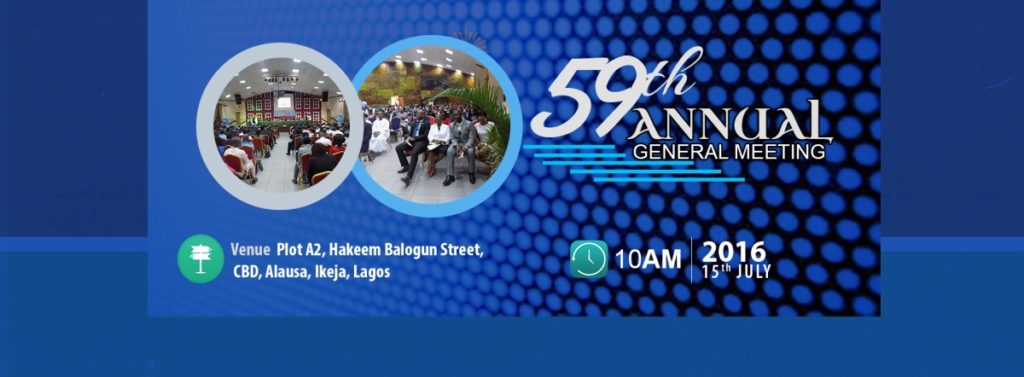BUSINESS ESSENTIALS Vol.3 No 13
Dear Esteemed Member,
In this edition, we appraise the need for a paradigm shift of the nation in order to ensure an appropriate recovery of the socio-economic process of the country within the framework of effective economic system, development, enhancing structures, patterns and evolution of production, allocation and utilization of its vast resources, similarly ensuring optimal development and efficient management of available resources, equitable allocation of such resources and effective utilization in order to ultimately achieve economic development; the issue of electricity (power) availability needs to be taken as a focal point in development planning, that is, the modern technologies needed to drive economic development are strictly tied to the use of energy.
We also share a recent decision of the Tax Appeal Tribunal that the first point of call on tax matters should always be the tax laws, and not contractual agreements or other rules that govern the industry. Our regular Labour and Employment Law Review, Upcoming Training Programmes and recent activities of the Association were not left out.
Have a pleasant reading.
Timothy Olawale
Editor
In this Issue:
- Economic Growth and the Power Sector: Time To Shift The Paradigm
- On Tax Matter, Which Is Supreme: Tax Laws or Contractual Agreement?
- Circular to Member Companies on the Minister Of Labour & & Employment’s Directive to Suspend Retrenchment
- Press Release On Directive To Suspend Retrenchment
- NECA’s Delegation To The 105th ILO Conference
- Labour & Employment Law: Disciplinary Procedure (Mrs. Gloria Ijeoma Nwokoma vs. First Bank of Nigeria Plc) (2014) 50 N.L.L.R. Pt 166, P. 357 NIC
- Upcoming Trainings Programmes
Economic Growth and the Power Sector: Time to Shift the Paradigm: With the Nigerian economy still under-performing, it is both instructive and thought-provoking that most commentators and analysts have focused largely on factors that are at best secondary issues: declining oil prices, dwindling government, undiversified revenues, among others. Yet what lies at the heart of Nigeria’s economic woes, as unpleasant as that word may sound is the lack of efficient energy supply in sufficient quantum. The reason for this is simple: if by some magic wand or miracle, the country achieves 21 hours of electricity per day in every residential, commercial or mixed-use area, we all know that the economy could jump right out of its recession to rapid, may be galloping growth within the next twelve months.
Based on the account of creation recorded in the first chapter of the Bible (Genesis), it is instructive that even God, the Almighty could not begin the work of creation until “there was light and God saw that it was good”. In essence, until there was light, even God did not see and He did not do! So why will those entrusted with the task of managing vital aspects of the economy make the implicit assumption that there can be growth without a solid energy base? I see two possible reasons: the first is what I’ll call the illusion of ‘omni-resilience’, i.e come what may, Nigeria will survive and thrive. The second, and perhaps the most dangerous, is the failure to re-examine the thinking, assumptions, and approaches that have failed us repeatedly.
While I do not doubt the significant investment of time, effort and money that is required to provide a steady supply of electricity, one can also not say, based on available facts, that successive governments in Nigeria have ever accorded the electric power sector the priority it deserves in our race for social and economic progress. In speeches, yes they do. But when it comes to resource allocation, and execution, power is clearly not on the front burner. If you’re in doubt, please check the allocation to power in the 2016 budget, and that of other years too.
Some nine years ago, some people decided to misinform the then President (late Umaru Musa Yar’Adua) and Nigerians with the claim that about US$16 billion was spent on power between 1999 and 2007 “with nothing to show for it”, what they deliberately failed to say was that the sum included salaries and wages of NEPA staff during the period in question, including the cost of generating, transmitting and distributing the power that the country consumed over the eight-year period. What those fellows did was to gross up every expense item related to the power sector, including advance payment for the design and procurement of power plants under the National Integrated Power Project (NIPP). So the question is this: How much of the entire sum represented actual investment from which the nation could expect real returns? While we cannot ignore the presence or impact of moral hazard in our electric power sector, it still amounts to self-delusion if the nation continues to expect positive results while clearly under-investing in such a vital precondition for growth.
A second, and perhaps more important issue with power is the paradigm that has dominated all our attempts to provide stable electricity. For all these decades, Nigeria has followed a top-down strategy for power provision even when documented experience from countries similar to ours suggest that there are more efficient, more viable alternatives. For example, the Minister for Power, Works and Housing while serving as Lagos State Governor was a strong proponent of distributed power, and there were indeed indications that should the party to which he belongs secure victory at the Federal level, one of the early priorities would be to de-centralize power transmission. Unfortunately that party is in power now and the mainstream music, for now is to retain the central system.
The idea of a central power pool which we operate in Nigeria is workable but not in anyway a guarantee for steady power. The risk with it is that what goes wrong with the system potentially affects all users. With a decentralized transmission system, and use of distributed power systems, chances of nation-wide blackouts are remote and losses from black outs can be more efficiently contained. Providing the right incentives for distributed power on a larger scale than the current allowable limit of 5-Megawatts is a faster way to get the power sector to drive the economy back on the path of growth than waiting for a complex, vulnerable system of interconnected sub-systems to get things right. We have been at this top-down thing since the 1980s and things have been getting worse.
To be frank, until government through enabling legislation and necessary fiscal incentives decides to encourage and empower a bottom-up approach to electric power generation and distribution, not only the power sector but our manufacturing sector and indeed the entire economy will continue to struggle and under-perform their true potentials. Fixing the economy is not rocket science and the common sense required to do so is available in the market place of international experience.
In the final analysis, Nigerians do not need a national grid. What we need is stable electricity. Of what security or strategic importance is a central grid that does not work?

ON TAX MATTERS, WHICH IS SUPREME: TAX LAWS OR CONTRACTUAL AGREEMENT?
 The Tax Appeal Tribunal (“the Tribunal”), Lagos zone, recently ruled in favour of Chevron Nigeria Limited (“the Appellant”) in its case with the Federal Inland Revenue Service (“the Respondent”). The key issues in dispute were:
The Tax Appeal Tribunal (“the Tribunal”), Lagos zone, recently ruled in favour of Chevron Nigeria Limited (“the Appellant”) in its case with the Federal Inland Revenue Service (“the Respondent”). The key issues in dispute were:
- whether the Appellant can claim capital allowances (i.e. petroleum investment allowance and annual allowance) on the tangible costs incurred on behalf of its joint venture partner, Nigerian National Petroleum Corporation (NNPC)
- whether the Appellant can claim intangible drilling costs it incurred on behalf of NNPC as a deductible expense in its tax returns.
The Respondent argued that the Appellant can only claim capital allowances and tax deductions to the extent of its equity participation (40%) in the joint venture, regardless of the tangible and intangible drilling costs it actually incurred. In arguing its position, the Respondent relied solely on the joint operating agreement between the Appellant and NNPC, which states the equity participation of the partners. The Respondent did not argue on points of tax law.
The Appellant, on its own part, contended that Section 10 of the Petroleum Profits Tax Act (PPTA) specifies that all expenses, including intangible drilling costs, incurred wholly, exclusively and necessarily by a company for its petroleum operations, are tax-deductible. The Appellant also noted that Section 20 of the PPTA and paragraphs 5 and 6 of the Second Schedule to the PPTA, entitles it to claim capital allowances on its qualifying capital expenditure. Therefore, its tax deductions and capital allowances cannot be limited to its equity participation in the joint venture, but should be based on its actual costs as stated in the PPTA.
The Tribunal ruled in favour of the Appellant on the grounds that taxation is strictly based on the provisions of the law and not on contracts or agreements. Accordingly, the Tribunal determined that all expenses wholly, exclusively and necessarily incurred by the Appellant for the purpose of its petroleum operations are deductible
OPINION:
When dealing with tax matters, the first point of call should always be the tax laws, and not contractual agreements or other rules that govern the industry. The TAT and the taxpayers seem to be on this same page with respect to this issue as evidenced by recent decisions.
…………………………………………………………………………………………………………………………………………………………………………………………………
PRESS RELEASE: Read Here
…………………………………………………………………………………………………………………………………………………………………………………………………
CIRCULAR TO MEMBER-COMPANIES ON THE MINISTER’S DIRECTIVE TO SUSPEND RETRENCHMENT: Read Here
…………………………………………………………………………………………………………………………………………………………………………………………………
NECA’S DELEGATION TO THE 105th ILO CONFERENCE
The 105th session of the International Labour Organisation (ILO) Conference holding in Geneva, Switzerland, commenced on Monday, 30th May 2016. The International Labour Conference (ILC) sets the broad policies of the International Labour Organization (ILO) and meets once a year in Geneva, Switzerland.
This annual “world parliament of labour” brings together more than 5,000 Government, Worker and Employer delegates from the ILO’s 187 member States. Nigeria, as a member of the ILO, is attending the conference and its delegation consists of representatives from Government, Labour and Employers.
To read the ILO Director-General Guy Ryder’s opening remarks plus pics of NECA’S DELEGATION here.
…………………………………………………………………………………………………………………………………………………………………………………………………
LABOUR & EMPLOYMENT LAW: Disciplinary Procedure (Mrs. Gloria Ijeoma Nwokoma vs. First Bank of Nigeria Plc) (2014) 50 N.L.L.R. Pt 166, P. 357 NIC
Facts:
- The claimant (Mrs. Gloria Ijeoma Nwokoma) was employed by the defendant in 1980 and rose to become the Branch Business Manager of Ezzamgbo Branch. However, she was summarily dismissed in September 2010
- In December 2009, the claimant and one Mr. Duru Henry Nnamdi, the Accountant were summoned before the Disciplinary Committee made up of seven persons for allegedly transferring monies to Abakalaki Branch without Police escorts which they denied.
- Subsequently, the claimant was initially suspended and on 25th August 2010, the defendant issued her with a summary dismissal letter. She wrote a letter of appeal which the defendant declined to approve.
- The claimant contended that the defendant did not follow the proper procedure in suspending and dismissing her after 30 years of service with the defendant. She alleged that before the incident that led to her summary dismissal, she was neither queried nor suspended throughout the period that she worked for the defendant.
- The defendant’s case was that a fraud was detected by the Internal Audit during a spot and check conducted on the Ezzamgbo Branch where the claimant was a Manager. It was discovered that the claimant was engaged in making specie movement (cash evacuation) using the marketing vehicles as against the Bullion Van provided for that purpose.
- Upon the discovery of the fraud, the claimant was issued with queries for frequently violating the Rules and Regulations of the defendant which led to the defendant losing money.
- The claimant was issued with a query in October 2006 and also invited by the Disciplinary Committee.
- At the Disciplinary Committee, the claimant was given the opportunity to state her involvement and put forward her defences. She was also given the opportunity to ask questions, state her case and even call witnesses.
- The defendant contended that it followed the proper procedure set down in the Employee’s Handbook in suspending and dismissing the claimant.
Issues
- Whether the punishment of summary dismissal of the claimant was justifiable in consideration of the facts of the case.
The Judgement
On exercise of disciplinary authority by employer over employee:-
The law allows an employer to exercise some form of disciplinary authority over the employee. Furthermore, it is the responsibility of the employer to draw up a disciplinary procedure to be followed in the disengagement of staff which often times is incorporated in the terms of employment.
On power of an employer to terminate a contract of employment with or without reason in master/servant employment relationship:-
In an employment relationship without statutory flavour, a master can terminate the contract of employment with his servant at any time for any reason or without reason at all provided that the terms of the contract of service are complied with. See: Adebayo vs. O.A.U.T.H.C.M.B (2000)9 NWLR pt. 673, p. 588
Once it is shown that termination of employment is in accordance with the terms of the employment, the issue of natural justice does not arise.
 On whether employer is bound to justify termination of employee’s appointment:-
On whether employer is bound to justify termination of employee’s appointment:-
An employer is not bound to give reasons for terminating the appointment of his employee. However, where he gives reason for the termination, the onus is on him to establish the reason stated. See: Afribank (Nig.) Plc vs. Osisanya (2000) 1 NWLR pt. 642, p. 592
On duty of an employer to show reason for dismissing an employee and rationale for:-
Dismissal carries infamy and deprives the dismissed employee of benefits while termination of employment does not. Therefore, in matters affecting the dismissal of an employee for whatever reason, the employer is expected to show a reason for the dismissal, a reason which the law would accept as sufficient to warrant the dismissal of the employee. See: Abomeli vs. NRC (1995) 1 NWLR pt 372 p. 451
On whom lies burden of proving fraud in civil matter and standard of proof required:-
A party who alleges fraud in a civil matter shall plead the particulars of fraud and be prepared to prove it beyond reasonable doubt. In the instant case, the defendant alleged fraud. However, particulars of fraud were not pleaded and no questions were asked under cross-examination on that issue. It is clear that the defendant abandoned that issue of fraud in this matter.
Final Judgment:-
The Judge held that the Court is a court of law and equity. By section 13 of the National Industrial Court of Nigeria Act 2006, the court is enjoined to administer Law and equity concurrently. The court commuted the summary dismissal of the claimant to early retirement and ordered that the defendant to calculate and pay the claimant all her earned entitlements and benefits as an early retiree.
OPINION:
The court found that the reason given for the dismissal, fraud, was not proved and/or established against the claimant. The court applied law and equity in arriving at its judgment, as the claimant was within the voluntary retirement age of 30 years in service.
…………………………………………………………………………………………………………………………………………………………………………………………………
TRAIN THE TRAINER COURSE
Date: 14 – 16 June, 2016
Duration: 3 Days
Venue: NECA Learning Center
Course fee: N115,000
Business Communication, Presentation & Writing Skills for Impact in the Workplace
Date: 23 – 24 June, 2016
Duration: 2 Days
Venue: NECA Learning Center
Course fee: Members: N82,500; Non- Members: N87,500
Performance Management and Appraisal System for Improved Productivity
Date: 28 – 30 June, 2016
Duration: 3 Days
Venue: NECA Learning Center
Course fee: Members: N110,500; Non- Members: N115,500
FIRS/NECA Interactive Session
Date: Monday, 27 June, 2016-06-06 Duration: 1 day
Venue: NECA House, Alausa, Ikeja
Course Fee: Free
For further details please contact Adewale (08069720364) adewale@neca.org.ng Visit www.neca.org.ng






Recent Comments